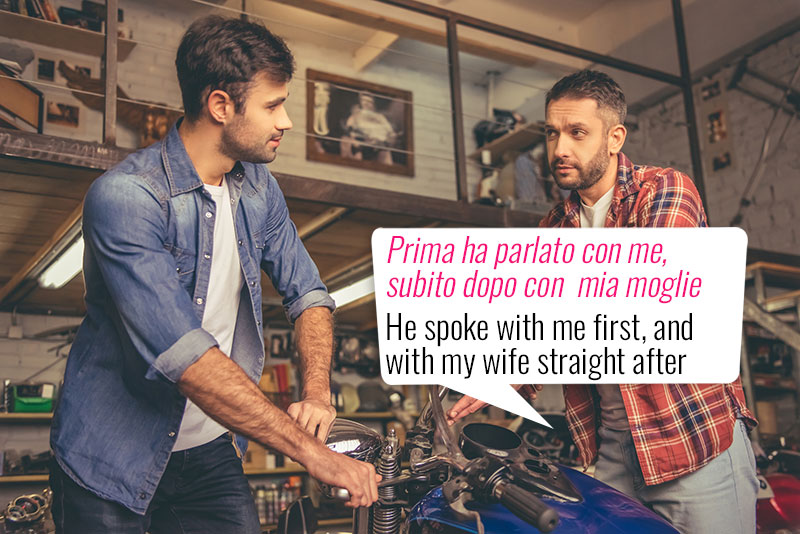Subito (soo-bee-toh) means “soon, “now,” or “immediately.” It is used in a variety of very common expressions so learning how to use it can be very handy!
As always, it comes from the Latin subitus, an adjective similar to the verb subire, which we’d translate with something on the line of “getting close to” or “coming close.” We began using it in Italian as early as the 15th century.
One expression with subito you may be familiar with — and if you’re not, believe me, it’ll come useful next time you’re in Italy! — is torno subito, which means “I’ll be right back.” Why do I say it’s a useful phrase to know? Because that’s what you’ll find written on store windows and doors, if the shop assistant/owner had to leave the premises temporarily. Worry not: the time of a quick coffee and they’ll be back.
Subito gives a sense of urgency to whatever you say: vieni subito qui! (“come here now!”) or devi venire subito a casa (“you must come back home now”) sound like an order to every Italian.
If something happens straight after another action, we said it happens subito dopo, which you’d translate as “straight after,” “soon after.”
And then, there are those who have a real lust for life or plenty of ambition and vogliono tutto subito (“they want everything, immediately”).
As you can see, our subito is a pretty useful little word. One to learn… subito!

Ho bisogno di aiuto, vieni subito a casa.
I need your help, come back home now.

Prima ha parlato con me, subito dopo con mia moglie.
He spoke with me first, and with my wife straight after.

Sei troppo egoista, non puoi avere tutto subito.
You’re too selfish, you can’t have everything immediately.






























